Brexit bill: Lords back down over issue of residents' rights
- Published
- comments
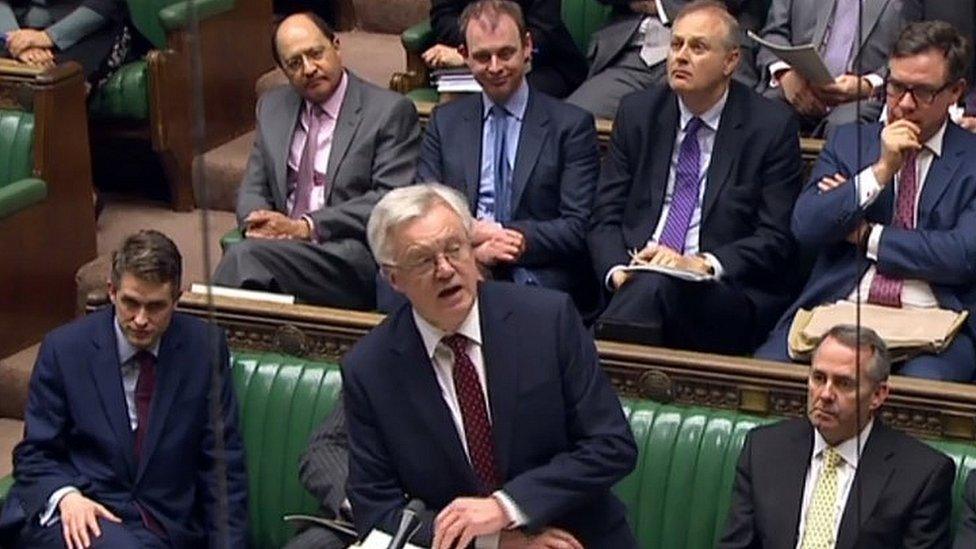
The Brexit bill is in its final stages after MPs voted down the Lords changes
The Brexit bill is in its final parliamentary stages, with the House of Lords on the verge of backing down and backing the landmark legislation.
The EU Withdrawal Bill, external is set to be passed after peers voted by 273 votes to 135 not to challenge the Commons again over the rights of EU nationals.
Labour says it will not continue its opposition, including over the issue of a vote on the final Brexit deal.
This came as MPs voted overwhelmingly to overturn the Lords amendments.
MPs rejected calls for the government to protect the status of EU nationals within three months of the start of Brexit talks by 335 votes to 287 and then dismissed calls for Parliament to have a meaningful vote on any Brexit deal by 331 to 286 votes.
Labour peers have said they will not vote to reinsert the provisions, meaning a period of what is known as "parliamentary ping-pong" between the elected chamber and its unelected counterpart is highly unlikely.
Conceding defeat, Labour's leader in the Lords Baroness Smith, told the BBC they had "done their best" in the face of what she claimed was the government's "pure stubbornness" but she said for the Lords to continue its opposition when the views of MPs were clear would be an "empty gesture".
Crossbench peer Lord Pannick said "it was time to give way" to the elected chamber.
As peers gathered to consider their position. the Lib Dems accused Labour of "giving up" and said they would continue to "fight until the end of the process" - forcing a fresh vote on the status of EU nationals in the UK.
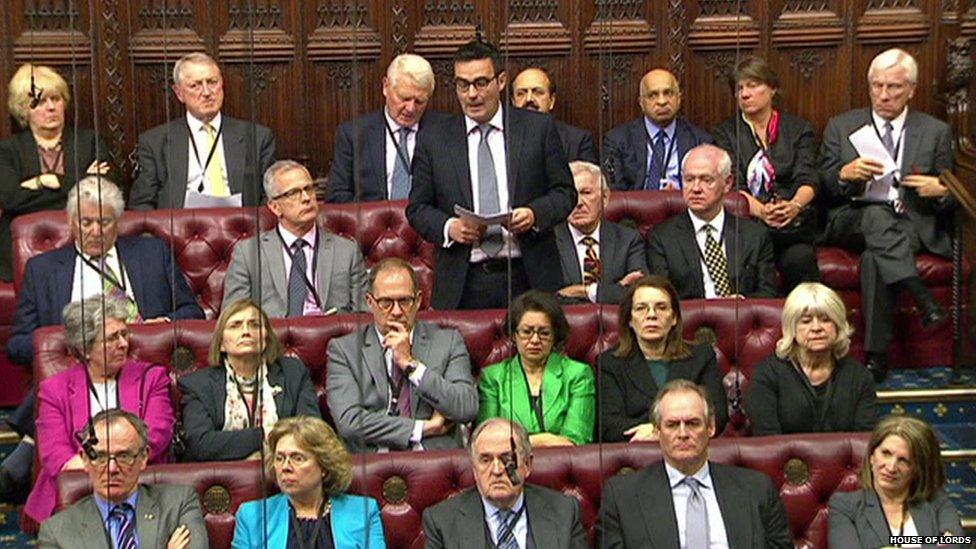
Lib Dem peers led calls for the status of EU nationals to be put to the vote again
Both Houses of Parliament have to agree the text of the bill before it can be sent for Royal Assent and become law. Prime Minister Theresa May could then theoretically trigger Article 50, which formally starts the Brexit process, as early as Tuesday.
However, Downing Street sources have said this will not happen this week and the PM is expected to wait until the end of the month to officially notify the EU of the UK's intention to leave.
Only two Tory MPs - Tania Mathias and Alex Chalk - defied the whip over the issue of EU nationals as the government won the first vote comfortably, aided by six Labour MPs who backed Theresa May.
There were no rebels in the second vote although 11 Tories abstained, including former cabinet ministers Nicky Morgan, Dominic Grieve and Anna Soubry.
'Quick deal'
Opening Monday's Commons debate, Brexit Secretary David Davis said MPs had already approved the bill "without any strings attached" and putting it into law "without further delay" would enable the negotiations to begin.
He said the government was committed to a "quick deal" on the rights of EU residents, but insisted guarantees must be reciprocal.
What will happen after the Brexit bill has passed? Ellie Price has the details.
He repeated the government's verbal assurances that both Houses would have a vote on any Brexit deal, but warned that while the Lords amendment "has been badged as a meaningful vote, the reality is there are some who would seek to use this to overturn the result of the referendum".
"We will not have anything that will put the intention to leave the EU in doubt," he told MPs.
But he was pressed by a number of Tory MPs over the exact nature of the parliamentary vote they've been promised. Former minister Anna Soubry said it was "perverse" that if the UK and EU were not able to agree a deal at all, that Parliament would not be "entitled" to pass its judgement.
"I would urge the government, for the sake of bringing unity to the country at large, that they allow Parliament's sovereignty to reign and in the event of no deal we have a vote and a say," she said.
'Shameful'
For Labour, shadow Brexit secretary Keir Starmer said there was a "compelling case" to give EU residents the certainty they deserved, arguing that "not only is it the right thing do in principle but it would set the right tone ahead of the negotiations".
Former Lib Dem leader Nick Clegg accused ministers of "shameful inaction" on the issue, while Green Party leader Caroline Lucas said MPs "were not elected to be lemmings" in the Brexit process.
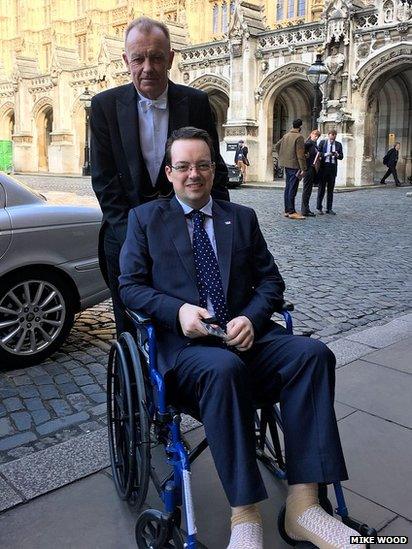
MP Mike Wood, convalescing after serious illness, took part in the vote
The SNP's Stephen Gethins said the question of the future of EU residents "went to the heart of what kind of country we want to be" and warned MPs not to hand the government a "blank cheque" in upcoming talks.
But the government won the backing of the vast majority of Tory MPs, including Dudley South's Mike Wood, who had been unable to vote during previous stages of the bill after being hospitalised with sepsis.
He tweeted: , external"I'm still recovering from sepsis but I was determined to vote to make sure that the decision taken in last June's referendum is implemented."
Mrs May has said Parliament will get a vote, but some MPs and peers want a stronger commitment to give them a more "meaningful" say - and to be able to potentially send her back to the negotiating table in Brussels.
Mrs May has said she would rather take the UK out of the EU with no deal rather than a "bad deal".
No deal would result in trade rules defaulting to World Trade Organisation standards, meaning the UK and EU would be obliged to apply to each other the tariffs and other trade restrictions they apply to the rest of the world.

- Published13 March 2017

- Published12 March 2017
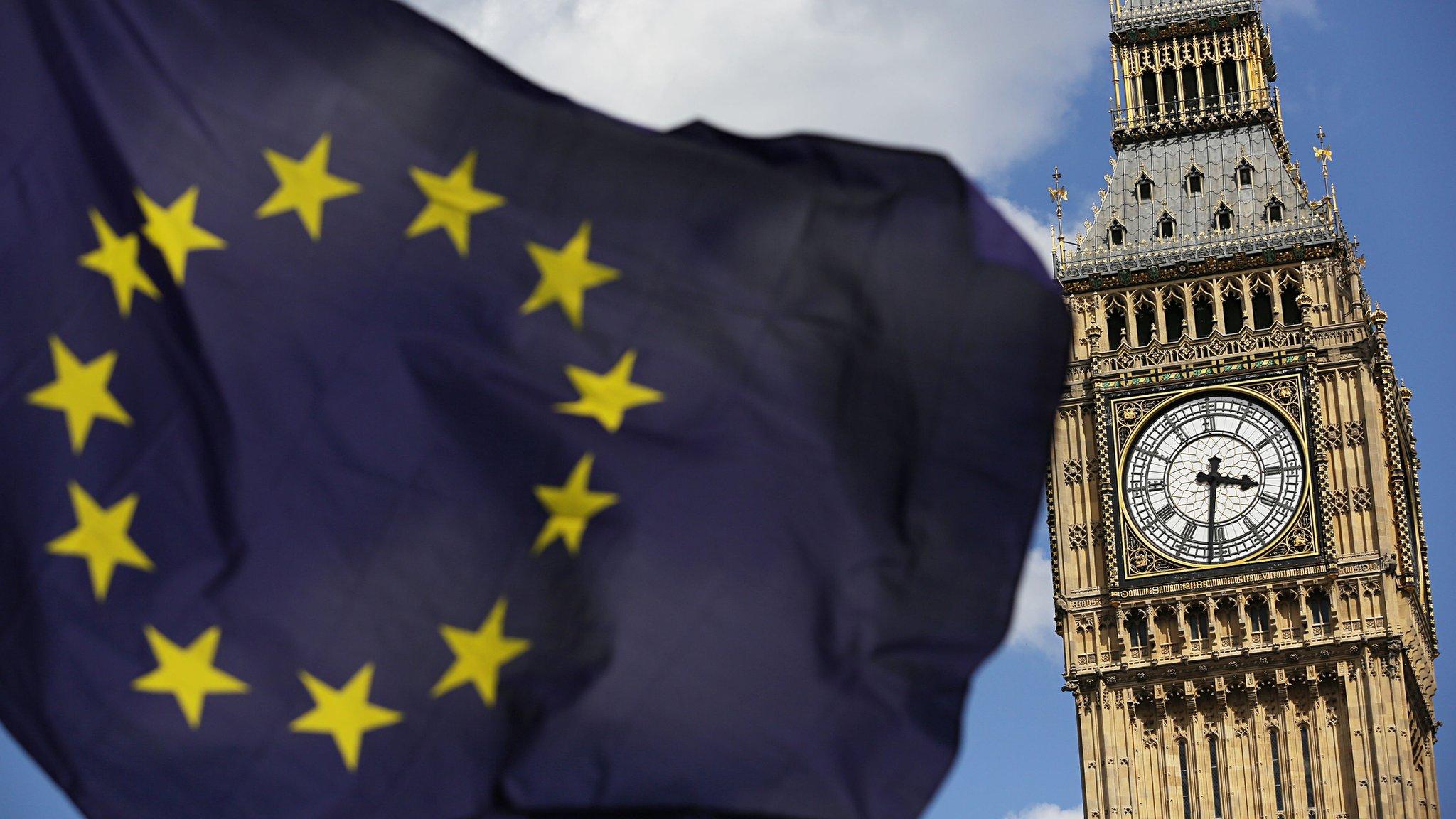
- Published7 March 2017
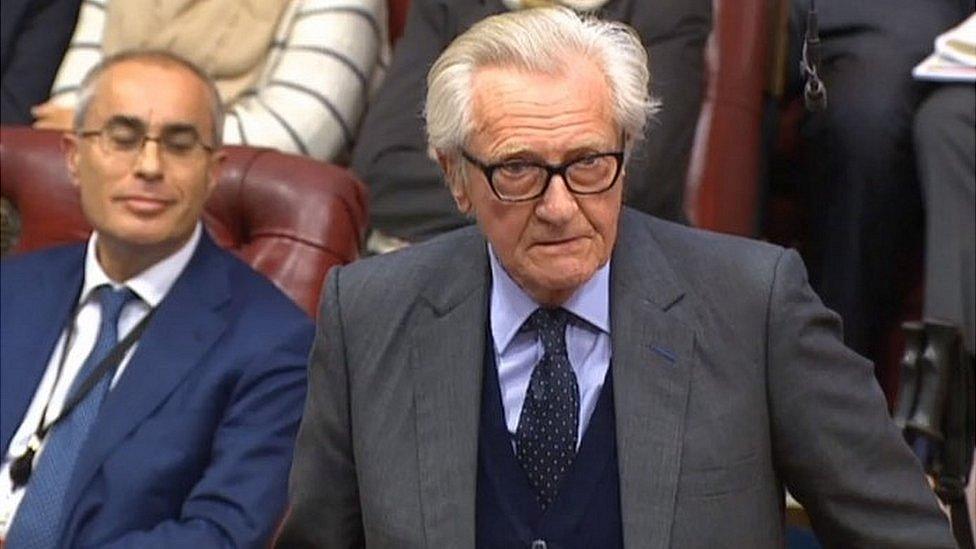
- Published30 December 2020
